Monthly Archives: February 2019
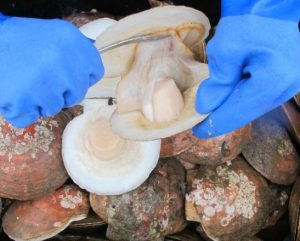
Investigating How Atlantic Sea Scallop Larvae Move Through A Fishery
A recent collaborative study from researchers at Rutgers University, Old Dominion University, University of Southern Mississippi, and NOAA Northeast Fisheries Science Center shows that scallop offspring – also known as larvae – can move among regions of the fishery, even though the fishery itself spans a huge area of the ocean off the east coast of the US. Scallops and other bivalves like oysters, clams, and mussels produce microscopic, free-swimming larvae. These larvae can, in some cases, traverse great distances,,, >click to read<21:19
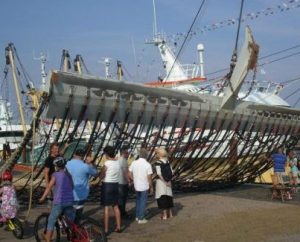
Dutch trawler industry furious as Brussels votes to ban pulse fishing
Dutch fishermen have reacted furiously to Brussels’ decision to phase out pulse fishing, a form of trawling using electric currents.‘Lies and emotion have beaten science,’ fishermen’s organisations said after the vote. ‘The European Council, the European Commission and the European parliament have been misled by the lies and emotional campaign fought by French environmental organisation Bloom.’In total, 42 Dutch trawlers will have to stop pulse fishing this year and 42 can continue until 2021. The agreement also states that six trawlers can continue to use the technique for research purposes.,, >click to read<20:42

Alternative Youth Activities students get a lesson in hard work from a fishing boat captain
Students with Alternative Youth Activities took a trip down to the Charleston Marina on Wednesday afternoon to learn how a commercial slime eel fishing boat operates. The eel fishing vessel the AYA students toured was the Molly Ann, captained by Leandro Patricelli. Patricelli shared his story of hard work and perseverance with the at-risk youth. He and his family emigrated to the U.S. from Sicily when he was eight years old. At the age of 14, Patricelli dropped out of high school and lied about his age to get a job on a fishing boat. >click to read<16:55
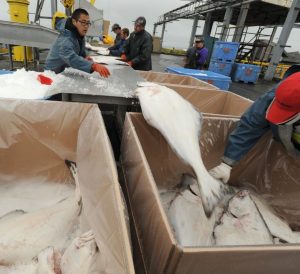
Complaints about ‘chalky’ halibut draw attention from international commission
After years of hearing concerns from fishermen about the prevalence of “chalky” Pacific halibut, the International Pacific Halibut Commission is planning to gather information for an investigation into it. Chalky halibut are fish that, when cut open, have a stiff, chalk-textured flesh as opposed to the normal pale and tender flesh. Chalky meat is not dangerous to humans but is not desirable and thus costs the fishermen at the dock. Dr. Josep Planas, who heads up biological research for the IPHC, noted plans to gather information about chalky halibut from stakeholders,, >click to read<16:07
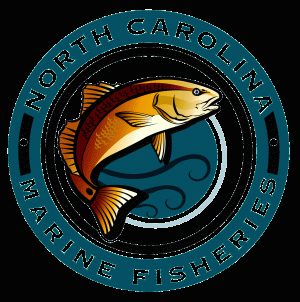
Two N.C. Marine Fisheries Commission Committees are accepting proposals
The N.C. Marine Fisheries Commission Commercial Resource Fund Committee and the Funding Committee for the N.C. Commercial Fishing Resource Fund are accepting proposals for the 2018-19 funding cycle from the N.C. Commercial Fishing Resource Fund. Proposals submitted for this funding cycle must fall under one of two programmatic areas: Economic Impact Study – Public Relations Campaign – >click to read<12:34
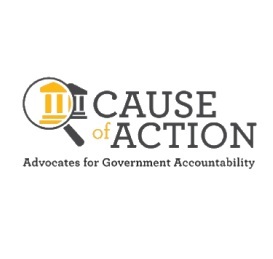
CoA Institute Sends Letter to Secretary Ross Requesting Public Confirmation of Controversial Fishery Regulation
The importance of an open and transparent government is rooted in the federal government’s ability to choose winners and losers, create barriers to economic freedom, and limit personal liberties. Family-owned fishing firms in New England recently had their economic freedom put at-risk when it was revealed that the government had secretly approved a proposal to impose new, and statutorily unauthorized, costs on their fishing operations. That’s why Cause of Action Institute (CoA Institute) sent a letter to U.S. Department of Commerce Secretary Wilbur Ross yesterday, criticizing his office’s lack of transparency and inadequate analysis surrounding the controversial fishery management regulations. >click to read< 10:46
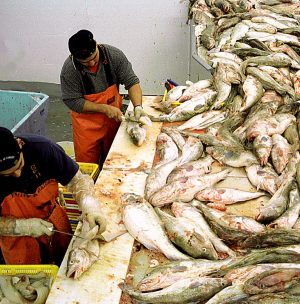
NPFMC takes first step toward rationalizing P-cod fishery
Pacific cod fishermen in the Bering Sea and Aleutian Islands, one of the last remaining unrationalized federal fisheries in Alaska, may finally have to cross that bridge. The North Pacific Fishery Management Council passed a motion at its meeting Feb. 9 to take action on the Pacific cod fishery, which is facing a number of issues in abundance, processing and participation. Depending on public review and the council’s action at the next several meetings, the Pacific cod fishery could see significant changes to seasons, limits and vessel participation. The motion hinges around an analysis developed on the trawl catcher vessel fishery and releases Alternatives 1, 2, 3 and 6 for public review separate from the rest. Rationalization, also known as catch shares,,, >click to read<
Athearn Marine Agency Boat of the Week: 55′ Dixon Tuna/Longliner, 1000HP, CAT C18
PRICE REDUCED!!
Specifications, information and 26 photos >click here< To see all the boats in this series, >click here
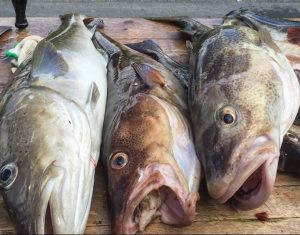
Bay of Islands fishermen supports opening market to outside buyers
A Bay of Islands fisherman believes a little competition among buyers can be a win for harvesters in this province.
In a news release issued earlier this week FISH-NL president Ryan Cleary questioned whether the province supports inshore harvesters being paid top dollar for their fish. ,,, Rick Crane is a member of the FFAW-Unifor (Fish, Food and Allied Workers Union) — because there is no choice not to be — and a supporter of FISH-NL. He said he sees both sides of the issue. >click to read<11:42
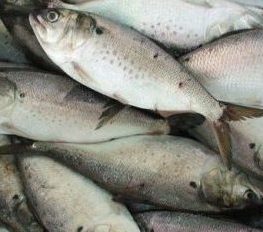
Virginia escapes sanction — for now — that could shut down menhaden fishing
A threat to shut down Virginia’s menhaden fishery disappeared after an interstate commission decided it wouldn’t find the state out of a compliance with a new quota for the oily fish. The Atlantic States Marine Fisheries Commission cut the quota for menhaden caught in Chesapeake Bay by purse-seine vessels by 42 percent back in 2017 — but the General Assembly balked this year and last at enacting that lower quota into state law. This month, the commission indefinitely postponed taking any action to find Virginia out of compliance, a finding that could trigger a federal moratorium on the fishery. >click to read<10:51
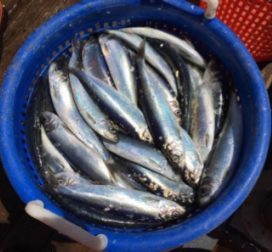
Cut in herring quota bodes ill for lobster
Imagine running a trucking business and having your supply of diesel fuel cut by70 percent. For all practical purposes, that’s what happened to the Maine lobster industry last week. On Thursday, the National Oceanic and Atmospheric Administration’s fisheries arm announced that it was cutting the 2019 herring quota by about 70 percent. That’s bad news for lobstermen. While diesel oil is the fuel that powers most lobster boats, herring is the fuel that powers the Maine lobster industry. Herring is the most popular bait used in the Maine lobster fishery and with the cut in the herring quota from about 110 million pounds last year to about 33 million pounds this year, bait is going to be scarce, and expensive. >click to read<22:16
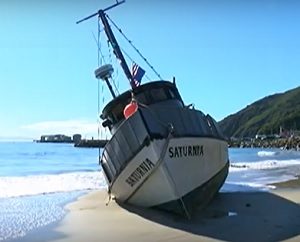
Boat owner faces deadline to remove fishing vessel from Port San Luis beach
A large fishing boat washed ashore in Port San Luis during a storm earlier this month. Now the boat’s owner, Steven Snyder, is tasked with removing it. Snyder has owned the Saturnia for 25 years. When stormy waters hit Port San Luis, he says he asked Harbor Patrol to take him out to his boat.,,, Authorities with the Port San Luis Harbor District declined an on-camera interview Monday but said ocean conditions were deemed too dangerous. >Video, click to read<15:10
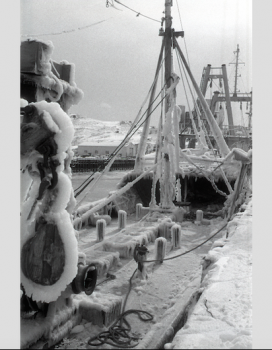
Down Memory Lane: The Blue Wave and Blue Mist tragedies
Grand Bank, like most other smaller communities in this province, has always depended on the sea for its very existence. From the days of small schooners and punts — powered only by the wind and sails — to the larger offshore banking schooners and then the wooden and steel trawlers, the men of that town have always looked to the nearby ocean to provide a livelihood. The Bonavista Cold Storage fresh fish plant opened in Grand Bank in the early 1950s, just as the days of the wooden schooner deep-sea salt fishery were coming to an end. The first two steel side-trawlers purchased by the company came from the United Kingdom and were designed for the North Sea fishery. >click to read<14:13
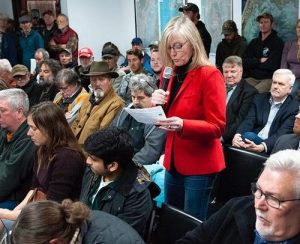
Harbor District Approves Lease for Massive Fish Farm
The Humboldt Bay Harbor, Recreation and Conservation District today approved a 30-year lease with Norwegian company Nordic Aquafarms to build a massive fish farm at the former pulp mill after hearing concerns the deal was ushered through without public review. The plan is to build a land-based aquaculture facility that would eventually produce some 25,000 tons of fish a year – likely salmon or steelhead – to serve as the West Coast hub for Nordic Aquafarms, which is currently in the process of developing an East Coast equivalent in Belfast, Maine.,,, Included in the terms is the right for the company to discharge 6 million gallons of wastewater per day using the site’s ocean outfall pipe, which extends 1.5 miles offshore.>click to read<11:51
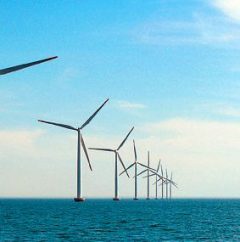
Vineyard Wind, Fishermen Set Compensation Deadline
Fishermen and Vineyard Wind have agreed to a deadline for settling their financial differences over a compensation package for the 92-square-mile offshore wind facility. After three months of stalled and at times heated discussions, Vineyard Wind, the Coastal Resources Management Council (CRMC) and its Fishermen’s Advisory Board (FAB) agreed to negotiate a mitigation package last week with hopes of reaching an agreement by Feb. 25. In a deal signed Feb. 8, the three parties said they would abide by the new deadline and not argue for more time. >click to read<11:01
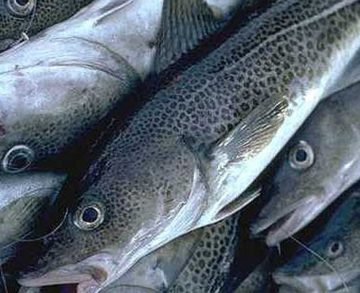
Sustainability: a flawed concept for fisheries management?
The concept of sustainable fishing is well ingrained in marine conservation and marine governance. However, I argue that the concept is deeply flawed; ecologically, socially and economically. Sustainability is strongly related, both historically and currently, to maximum long-term economic exploitation of a system. Counter-intuitively, in fisheries, achieving this economic exploitation often relies on government subsidies. While many fish populations are not sustainably fished biologically, even ‘sustainably harvesting’ fish results in major ecological changes to marine systems. These changes create unknown damage to ecosystem processes, including carbon capture potential of the ocean. The spatial scale of commercial fishing processes can also lead to social and food security issues in local, coastal communities that rely on fish for dietary needs. A radical alternative proposal is provided to the current situation.,,, MSY, however, has been a mainstay of fisheries policy since the term was introduced in 1954 (Schaefer, 1954), and is covered in many basic ecological textbooks (e.g., Begon et al., 2006). The concept is simple: By Richard Stafford>click to read<21:13
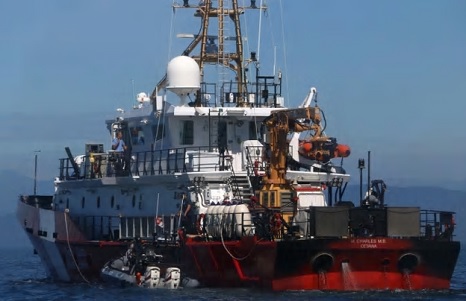
Coast guard’s $227M ships rock ‘like crazy,’ making crews seasick, unable to work
Canada’s $227-million fleet of mid-shore coast guard vessels are rolling “like crazy” at sea, making crews seasick and keeping some ships in port during weather conditions where they should be able to operate, CBC News has learned. Canadian Coast Guard records and correspondence obtained under federal access to information legislation raise questions about the patrol vessels’ seagoing capability and reveal a two-year debate — still unresolved — on how to address the problem. At issue is the lack of stabilizer fins — blades that stick out from the hull to counteract the rolling motion of waves — on nine Hero class ships that were built by the Irving Shipyard in Halifax between 2010 and 2014. >click to read<19:03
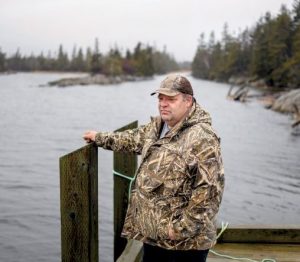
Brazen thieves are pinching lobster from East Coast fishermen
As lobster fisherman Ken Wyatt rang in the new year with 40 friends in his sprawling shed, four kilometres away at the end of a winding, unlit dirt road, thieves in the tiny Nova Scotian fishing community of Port Medway positioned themselves for a heist. Unbeknownst to Wyatt, as he and his crew clinked beer bottles—and many others around the world feasted on lobster from these waters—thieves were pushing a small boat down a seaweed-covered slipway. The booty that night: 800 lb. of premium lobsters being stored out in the black, icy waters of the Atlantic. “They knew we were partying,” says Wyatt, 53. “They had balls to go down there. They scouted it out.” >click to read<16:12

FISH-NL questions whether complaints against Royal Greenland smokescreen to cover the fact local processors underpaying fishermen
The Federation of Independent Sea Harvesters of Newfoundland and Labrador (FISH-NL) questions whether the Dwight Ball government supports inshore harvesters being paid top dollar for their fish. “Local processors and buyers have been screaming bloody murder because Royal Greenland is paying harvesters more for their product — forcing them to increase their prices,” says Ryan Cleary, President of FISH-NL. “That tells us the minimum negotiated price is too low, and reinforces our stand that the province should open the door to outside buyers.” “It’s time for the provincial government and the FFAW-Unifor to say which side they’re on — with inshore harvesters and free enterprise, or against them.” >click to read< 14:54
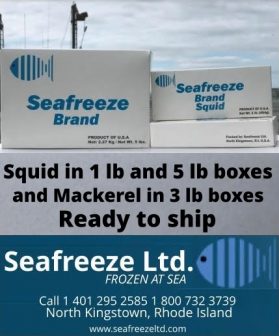
Always Top Quality! Your Seafreeze Ltd. Price Sheet for February 2019 Has Arrived!
Contact our sales team today @ 401 295 2585 or 800 732 273 For the complete price list from Seafreeze Ltd., >Click here< – We are Direct to the Source-We are Fishermen-We are Seafreeze Ltd! >Click here< to visit our website!
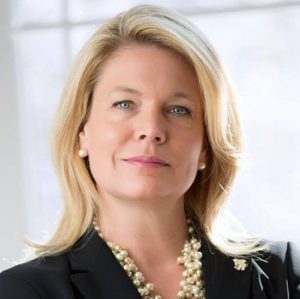
Somers introduces bill to help Stonington fishermen
State Sen. Heather Somers, R-18th District, has introduced a bill that she said Sunday would help Stonington fishermen stay afloat amid the sea of federal and state regulations that are hurting their businesses. The bill is scheduled to have a public hearing before the legislature’s Environment Committee on Friday. It would let Connecticut enter into agreements with bordering states to allow commercial fishermen from Connecticut to legally carry fish earmarked for one state into another state’s port without penalty — making the schedules and lives of fishermen economically and logistically easier. >click to read<08:18
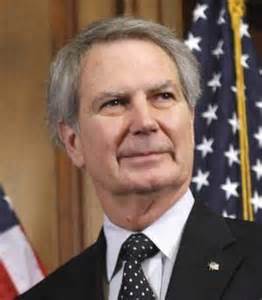
North Carolina Rep. Walter Jones has died
Rep. Walter Jones (R-N.C.) has died at the age of 76. He had been in hospice care for the past several weeks. Jones’ office released this statement Sunday evening: After faithfully representing the people of Eastern North Carolina in Congress and the state legislature for over 34 years, Congressman Walter B. Jones (NC-3) passed away this afternoon in Greenville, North Carolina. He was 76. Congressman Jones will long be remembered for his honesty, faith and integrity. He was never afraid to take a principled stand. He was known for his independence, and widely admired across the political spectrum. Some may not have agreed with him, but all recognized that he did what he thought was right. >click to read<18:58
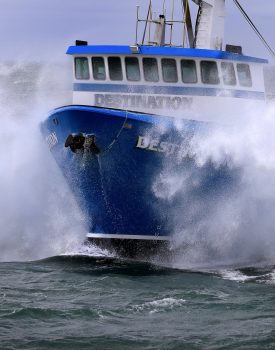
NO RETURN: The final voyage of the crab boat Destination
The Seattle-based Destination went down without a mayday call two years ago this week, stunning a Bering Sea crabbing industry that appeared to have left its deadly legacy behind. A former crewman is haunted by what may have gone wrong in the sinking that killed his brother and five others. ,,, The Destination sank after more than a decade of relative safety in a Bering Sea crab fleet that appeared to have left behind the deadly legacy of the late 20th century, when dozens upon dozens died as their boats went down. For industry veterans, the loss of the Destination was a gut-check that spurred reflection: Are we as safe as we think? >click to read<12:47
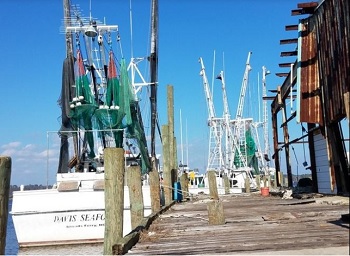
Fishermen say ‘hurt’ from hurricane hard to measure
Millis Seafood owner Tim Millis has been working in the commercial fishing industry for more the 60 years and remembers the devastation of Hurricane Hazel. Hazel left a path of destruction from wind and storm surge that residents weren’t prepared for in the days before the warning systems that are in place today. Hurricane Florence, he said, was different.“Others came in and were gone. This one stayed longer, pouring all that rain,” Millis said.
>click to read<11:21
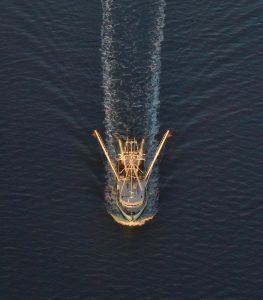
County commercial fishermen get $460K in hurricane relief
The first round of state hurricane relief funds for commercial fishermen has been released, with Carteret County watermen receiving the most checks out of all the coastal counties. Gov. Roy Cooper’s office issued a press release Feb. 1 announcing that the first round of checks from the $11.6 million Hurricane Florence Commercial Fishing Assistance Program have been issued from the N.C. Department of Environmental Quality’s Division of Marine Fisheries. As of Feb. 1, the state has cut 664 checks, totaling $3.2 million to help compensate ,,, >click to read<22:56
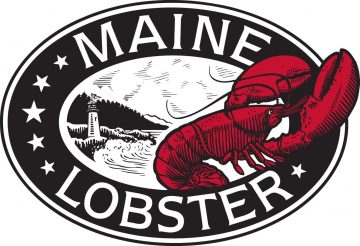
Maine Lobster Marketing Collaborative Executive Director Matt Jacobson To Step Down
Today, Maine Lobster Marketing Collaborative (MLMC) Executive Director Matt Jacobson informed the organization’s board of directors that heExecutive Director Matt Jacobson effective Monday, February 25, 2019. “On behalf of the entire board, we want to thank Matt for his dedicated service in this role over the past five years,” said Frank Gotwals, MLMC board chairman and fisherman based in Stonington, ME. >click to read<19:17

Record Lobster Production Defies Alarmist Climate Scare
Marine fisheries data show New England lobstermen are benefiting from a new golden age of lobster, thanks in large part to a warming Earth. Yet Democrats in Congress and even lobster lobbyists asserted in House climate hearings earlier in February that global warming is causing a lobster apocalypse. Thankfully, facts and scientific evidence can help us put this latest global warming scare to rest. On February 7, Democrats in the House Natural Resources Subcommittee on Water, Oceans, and Wildlife held hearings with the purpose of raising concern about global warming. >click to read<14:33
Subcommittee Hearing: Healthy Oceans and Healthy Economies: The State of Our Oceans In the 21st Century – Video, >click to watch<






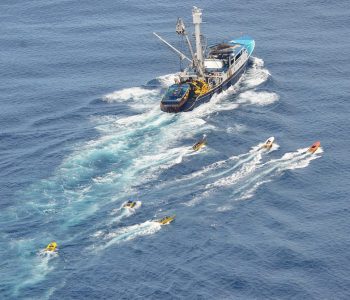
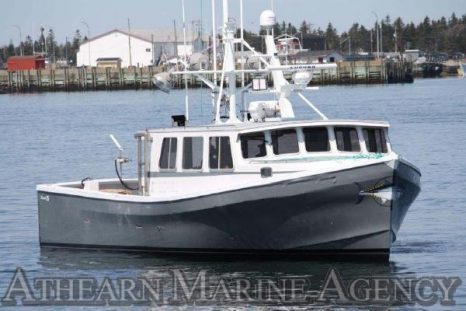
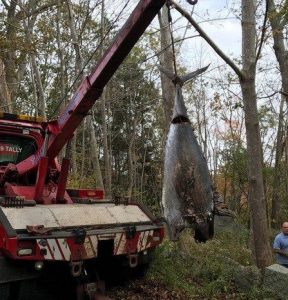



























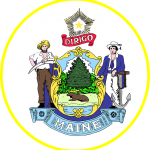
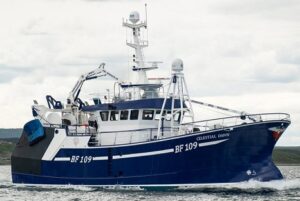

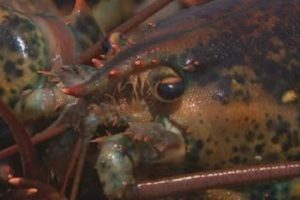
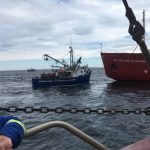
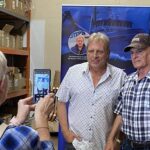
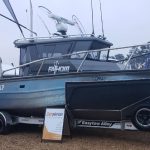
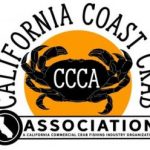
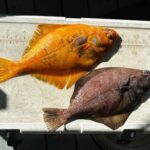
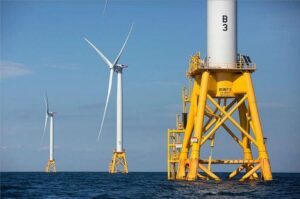
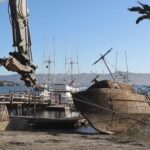

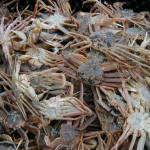



Scallops: NEFMC to Hold 10 Scoping Meetings on Northern Gulf of Maine, Limited Access General Category Amendment
The New England Fishery Management Council has scheduled 10 scoping meetings from Maine to Virginia to gather public input on the development of Amendment 21 to the Atlantic Sea Scallop Fishery Management Plan. This amendment is being developed to address three primary issues: • Northern Gulf of Maine (NGOM) Management Area measures; • Limited Access General Category (LAGC) individual fishing quota (IFQ) possession limits; and • The ability for Limited Access vessels with LAGC IFQ to transfer their quota to vessels that onlyhold LAGC IFQ permits. >Click here for time schedules, locations, and other information<16:03
Share this post